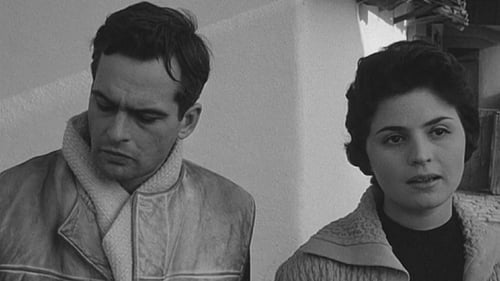János Koltai
Рождение : 1935-06-08, Budapest, Hungary

Perczel

The scene is Ukraine. In 1943, after the Hungarian' defeat at the river Don, soldier Balogh decides to visit his family.

Priest
This Hungarian film chronicles the slow deterioration in the life of Juli, a farmer's wife. As the countryside grows ever more deserted because people are moving to towns or large collective farms, she spends more and more time alone. Despite her best efforts to appreciate her situation, her despair grows. The loneliness is briefly interrupted when she and her husband take in an old woman and care for her, but the woman dies. Shortly after her son visits, she is killed in an accident which may have been a suicide. ~ Clarke Fountain, Rovi

Lõrinc pap
The film is a historic parable about the topicality of revolution. 1514. The peasants' uprising is over, Dózsa has been arrested. Werbőczy tries to get the imprisoned peasant leader deny the revolution and offers him the lives of his people in exchange.

Gyönyörű, párttitkár
This ironic comedy is set in the god-forsaken Kiskúnbékás, at the end of the fifties. There are no jobs, the town's "golden team", who once were third class national soccer players have scattered

Peasant
Осень 1919 года. Венгерская Социалистическая революция пала под натиском хортистской армии. Остатки сопротивления жестоко подавляются. Действие фильма происходит на хуторе, затерянном в степи.

A 40-year-old sculptor returns home to witness the baptism of his young nephew. His return prompts a series of flashbacks to his youth and the political upheaval experienced by his family and friends.

Fülöp Bánó
The changing and turbulent history of Hungary is seen through the eyes of three men over a 30-year period in this somber drama. The three recall the highlights of their lives in flashbacks as they reminisce in the mid 1960s. The venerable trio begin their story in the 1930s, through World War II, and the decade beyond the communist invasion of 1956.

Kerekes (Antal Pager) believes he is wanted by the police when his friends play a practical joke in this unusual comedy drama. He returns to his hometown where he was accused of turning a Jewish druggist and the druggist's wife over to the Nazis. With his friends following him, Kerekes tries to find out what became of the couple after they were deported. After being subjected to a mock trial by his friends -- and found guilty -- Kerekes becomes despondent and attempts to kill himself. Flashbacks and hallucinations are employed to tell this story that occurs during the Eichmann trial. Both the film and Antal Pager gained some unwanted publicity when a Variety article from April 23rd, 1967 accused Pager of being a Nazi collaborator for his role in an anti-Semitic film during World War II.

Múmia

Adolf Gottlieb
Andras Kovacs' film, considered one of the most important Hungarian films of the 1960s, centers around four men who await trial for their involvement in the massacre of several thousand Jewish and Serbian people of Novi Sad in 1942. Each denies any responsibility, claiming that they were only following orders. The film is significant for its willingness to address the subject of Hungary's role in WWII, which was taboo at the time of the its release.

Török Mihály
For the first time after 11 years, Simon, a young historian visits the village of his childhood at Balaton and Aunt Lina, his foster-mother. He gets upset by what he experiences there: the old woman's troublesome and vexing everydays, her quiet sadness. He is overwhelmed by his own memories, the death of his foster-father and by everything he was not aware of before, or he simply wanted to forget.

Varjú Béla
В Венгрии конца 60-х годов XIX века подавлено национальное движение под предводительством Кошута. Восстановлено господство Австрии, но партизанская война продолжается. Чтобы окончательно уничтожить повстанцев, австрийская армия окружает большую группу подозреваемых и заключает ее в неприступный форт. Предполагается, что среди заключенных находятся и лидеры повстанческого движения, но опознать их никак не удается. И тогда к части заключенных применяются самые вероломные формы насилия для получения необходимой информации…

Hazatérõ zsidó
Весна 1945 года. В последние дни освобождения Венгрии встретились русский солдат Коля и пленный венгр-гимназист Йошка. Дружба с Колей помогла Йошке правильно понять и оценить происходящие события.

В онкологической клинике находятся на излечении люди различных возрастов и профессий. Доктор Аради тщательно изучает виды злокачественных опухолей. Он работает над поисками метода и способа их лечения. Помимо чисто лечебных средств доктор применяет и всевозможные методы психологического воздействия на своих пациентов. Каждому больному он рекомендует заниматься в клинике тем делом, которое ему близко, которое составляет частицу его жизни. Так, молодой ученый Давид возобновляет по совету доктора Аради исследования в области народной музыки. В клинике находится молодая женщина из Капошвара Лилла. Болезнь и неудачная семейная жизнь сближают Давида и Лиллу. В любви друг к другу они черпают новые силы для борьбы с болезнью. Лилла выздоравливает и покидает клинику. Давид остается, но его не оставляет надежда, что скоро и он сможет последовать за Лиллой.

Iván Kovács
Фильм повествует о нескольких днях из жизни доктора Ярома. Иллюстрация нравственного кризиса героя, который к 32 годам оказался в полном внутреннем одиночестве и растерянности. Чтобы найти ответы на мучающие его вопросы, он отправляется в деревню, откуда он родом. В окружении старика-отца, старшего брата и бывшей возлюбленной, которую он предал, Яром пытается переосмыслить свою жизнь.

Artist
Huszárik's graduation film was another short entitled Groteszk (Grotesque) in 1963 about a strange train voyage of an artist carrying his own picture.

Sebők Zoltán, the brain surgeon, performed a secret abortion on his lover and the woman died. The man waiting for the autopsy (and his arrest) escapes to his father's villa at Lake Balaton.














